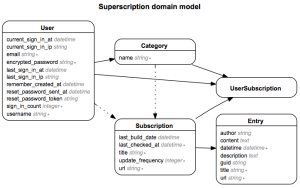#!/usr/bin/env python3
# Copyright © 2015 Zack M. Davis
# Permission is hereby granted, free of charge, to any person obtaining a copy
# of this software and associated documentation files (the "Software"), to deal
# in the Software without restriction, including without limitation the rights
# to use, copy, modify, merge, publish, distribute, sublicense, and/or sell
# copies of the Software, and to permit persons to whom the Software is
# furnished to do so, subject to the following conditions:
# The above copyright notice and this permission notice shall be included in
# all copies or substantial portions of the Software.
# THE SOFTWARE IS PROVIDED "AS IS", WITHOUT WARRANTY OF ANY KIND, EXPRESS OR
# IMPLIED, INCLUDING BUT NOT LIMITED TO THE WARRANTIES OF MERCHANTABILITY,
# FITNESS FOR A PARTICULAR PURPOSE AND NONINFRINGEMENT. IN NO EVENT SHALL THE
# AUTHORS OR COPYRIGHT HOLDERS BE LIABLE FOR ANY CLAIM, DAMAGES OR OTHER
# LIABILITY, WHETHER IN AN ACTION OF CONTRACT, TORT OR OTHERWISE, ARISING FROM,
# OUT OF OR IN CONNECTION WITH THE SOFTWARE OR THE USE OR OTHER DEALINGS IN
# THE SOFTWARE.
"""
Configure the machine to shunt traffic to distracting sites to localhost,
preserving attention.
"""
import os
import argparse
import subprocess
import sys
from datetime import datetime, timedelta
ETC_HOSTS = os.path.join(os.sep, 'etc', 'hosts')
HEADER = "# below managed by attentional shunt"
INVERSE_COMMANDS = {'enable': "disable", 'disable': "enable"}
DISTRACTING_HOSTS = ( # modify as needed
'news.ycombinator.com',
'math.stackexchange.com',
'scifi.stackexchange.com',
'worldbuilding.stackexchange.com',
'workplace.stackexchange.com',
'academia.stackexchange.com',
'codereview.stackexchange.com',
'puzzling.stackexchange.com',
'slatestarcodex.com',
'twitter.com',
'www.facebook.com',
'slatestarscratchpad.tumblr.com',
)
SHUNTING_LINES = "\n{}\n{}\n".format(
HEADER,
'\n'.join("127.0.0.1 {}".format(domain)
for domain in DISTRACTING_HOSTS)
)
def conditionally_reexec_with_sudo():
if os.geteuid() != 0:
os.execvp("sudo", ["sudo"] + sys.argv)
def enable_shunt():
if is_enabled():
return # nothing to do
with open(ETC_HOSTS, 'a') as etc_hosts:
etc_hosts.write(SHUNTING_LINES)
def disable_shunt():
with open(ETC_HOSTS) as etc_hosts:
content = etc_hosts.read()
if SHUNTING_LINES not in content:
return # nothing to do
with open(ETC_HOSTS, 'w') as etc_hosts:
etc_hosts.write(content.replace(SHUNTING_LINES, ''))
def is_enabled():
with open(ETC_HOSTS) as etc_hosts:
content = etc_hosts.read()
return HEADER in content
def status():
state = "enabled" if is_enabled() else "disabled"
print("attentional shunt is {}".format(state))
def schedule(command, when): # requires `at` job-scheduling utility
timestamp = when.strftime("%H:%M %Y-%m-%d")
at_command = ['at', timestamp]
at = subprocess.Popen(
at_command,
stdin=subprocess.PIPE, stdout=subprocess.PIPE, stderr=subprocess.PIPE
)
at.communicate(command.encode())
if __name__ == "__main__":
arg_parser = argparse.ArgumentParser(description=__doc__)
arg_parser.add_argument('command',
choices=("enable", "disable", "status"))
arg_parser.add_argument('duration', nargs='?', type=int,
help=("revert state change after this many "
"minutes"))
args = arg_parser.parse_args()
if args.command == "status":
status()
else:
conditionally_reexec_with_sudo()
if args.command == "enable":
enable_shunt()
elif args.command == "disable":
disable_shunt()
if args.duration:
now = datetime.now()
inverse_command = INVERSE_COMMANDS[args.command]
schedule(
"{} {}".format(os.path.realpath(__file__), inverse_command),
now + timedelta(minutes=args.duration)
)


